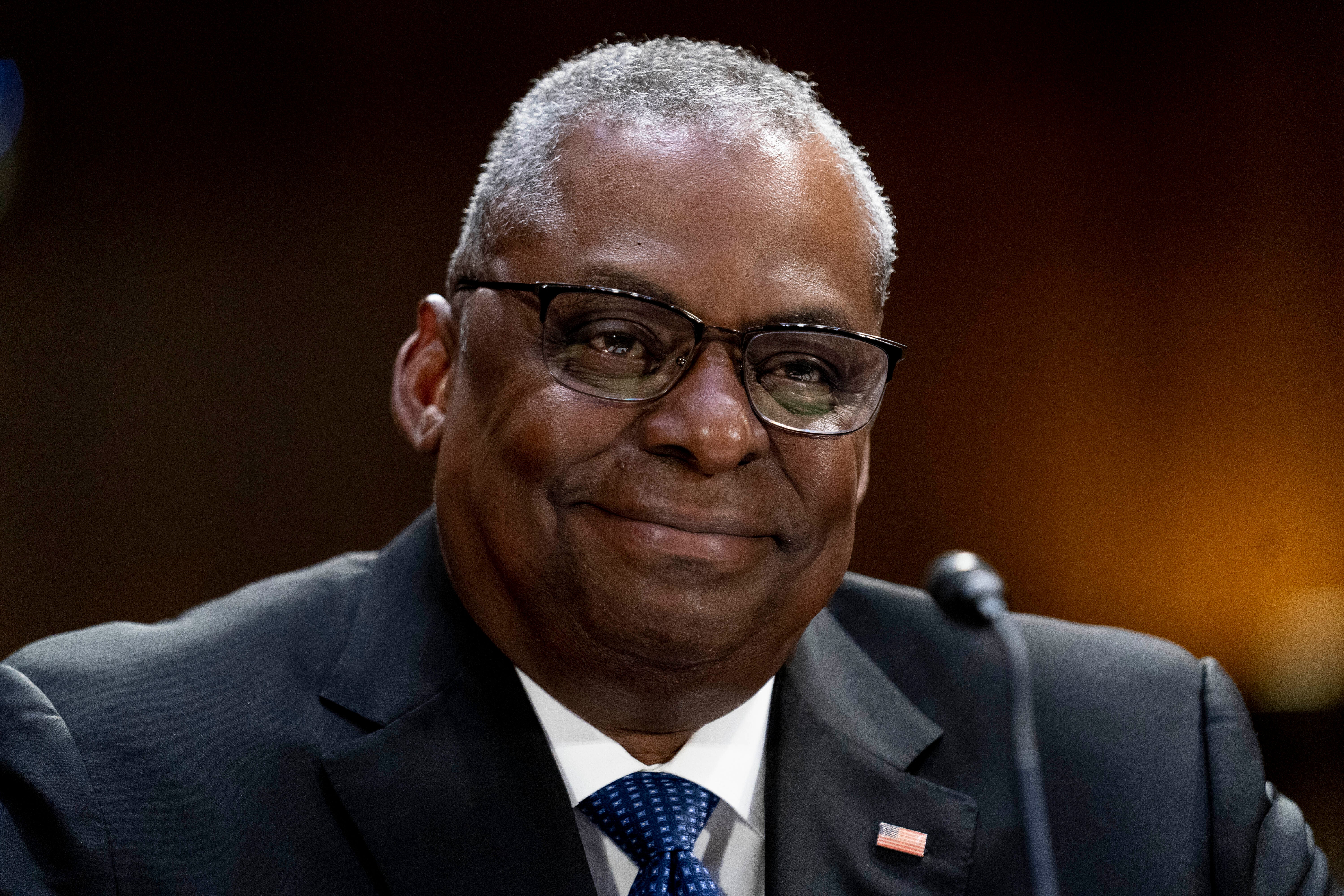Ukraine pilots should begin fighter jet training in weeks, says US Defense Secretary
Defense Secretary Lloyd Austin says he hopes that training for Ukrainian pilots on American-made F-16 fighter jets will begin in the coming weeks

Your support helps us to tell the story
From reproductive rights to climate change to Big Tech, The Independent is on the ground when the story is developing. Whether it's investigating the financials of Elon Musk's pro-Trump PAC or producing our latest documentary, 'The A Word', which shines a light on the American women fighting for reproductive rights, we know how important it is to parse out the facts from the messaging.
At such a critical moment in US history, we need reporters on the ground. Your donation allows us to keep sending journalists to speak to both sides of the story.
The Independent is trusted by Americans across the entire political spectrum. And unlike many other quality news outlets, we choose not to lock Americans out of our reporting and analysis with paywalls. We believe quality journalism should be available to everyone, paid for by those who can afford it.
Your support makes all the difference.Defense Secretary Lloyd Austin said Thursday he hopes that training for Ukrainian pilots on American-made F-16 fighter jets will begin in the coming weeks, bolstering Ukraine in the long run but not necessarily as part of an anticipated spring counteroffensive against Russia.
Austin spoke as defense leaders from around the world assembled for a virtual meeting to discuss the ongoing military support for Ukraine. They were expected talk about which countries will provide F-16s, and how and where the pilot training will be done.
The officials will also get an update on the war effort from Ukrainian leaders, including preparation for that anticipated counteroffensive and how the allies, who have faced their own stockpile pressures, can continue to support Kyiv's fight against Russia.
“We’re going to have to dig deeper, and we’re going to have to continue to look for creative ways to boost our industrial capability,” Austin said before the military leaders began their closed session. “The stakes are high. But the cause is just and our will is strong.”
European countries have said they are talking about which countries may have some of the F-16s available. The United States had long balked at providing the advanced aircraft to Ukraine, and only last weekend did President Joe Biden agree to allow other nations to send their own U.S.-made jets to Kyiv.
“We hope this training will begin in the coming weeks,” Austin said. “This will further strengthen and improve the capabilities of the Ukrainian Air Force in the long term. And it will complement our short-term and medium-term security agreements. This new joint effort sends a powerful message about our unity and our long-term commitment to Ukraine’s self-defense.”
The leaders will also likely discuss Ukraine's other continuing military needs, including air defense systems and munitions, artillery and other ammunition.
It was not immediately clear whether they will make any firm decisions on the F-16 issue, but initial steps have begun.
Josep Borrell, the European Union’s foreign policy chief, said Tuesday that training for Ukrainian pilots had begun in Poland and some other countries, though Polish Defense Minister Mariusz Blaszczak said training was still in the planning phase. The Netherlands and Denmark, among others, are also making plans for training.
“We can continue and also finalize the plans that we’re making with Denmark and other allies to start these these trainings. And of course, that is the first step that you have to take,” Dutch Defense Minister Kajsa Ollongren said, adding that initial discussions about who may have F-16s available to send is underway.
Ukraine has long sought the sophisticated fighter to give it a combat edge as it battles Russia’s invasion, now in its second year.
The Biden administration's decision was a sharp reversal after refusing to approve any transfer of the aircraft or conduct training for more than a year because of worries that doing so could escalate tensions with Russia. U.S. officials also had argued against the F-16 by saying that learning to fly and logistically support such an advanced aircraft would be difficult and take months.
Air Force Brig. Gen. Pat Ryder, the Pentagon press secretary, said this week that the U.S. decision on the F-16 was part of a broader long-term commitment to meet Ukraine's future military needs. He said the jets would not be relevant in any counteroffensive expected to begin shortly.